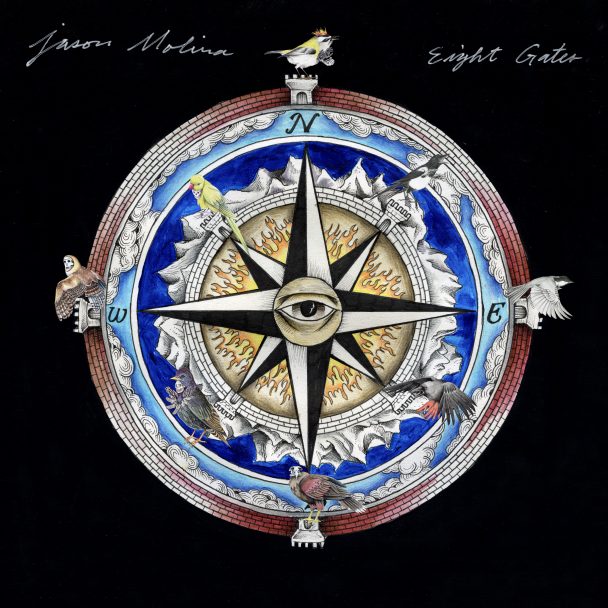The legacy of late Jason Molina, who sadly passed after a struggle with alcoholism in March 2013 at the age of 39, remains an honor. More than 20 years of material and hundreds of songs were released under various monikers (from Songs: Ohia in the mid-’90s to early ’00s, and Magnolia Electric Co. from 2003 to 2012), his influence resonates from the underground scene to this day.
From Southern Gothic Americana on “Didn’t It Rain’ (2002) to indie-folk blues on ‘Magnolia Electric Co.’ (2003), the prolific, Ohio-born artist continually reinvented his sound across his albums. That said, Molina’s discography remains thematically concise – the feelings of longing, loneliness, and sentimentality are captured expertly throughout.
His last nine-track collection of largely acoustic-led solo recordings, the quietly devastating Eight Gates concludes this extensive career. Singing bleak lullabies of a ‘howling universe’ on “Whisper Back” and hands of ‘beggars’ on “Be Told The Truth,” Molina uses enchantingly barren metaphors to represent a disintegrating planet. He is accompanied by restless guitar progressions and solemn, ceremonial organs along with smooth, winding strings. The instrumentation sounds desperate as the voice of Molina veers between melodic intonation and wounded harshness.
These haunting poetic pieces conjure up a musical eulogy. But there is room left for those moments of quiet hope, as is always the case with Molina: some tracks are peppered with the twittering of parakeets that would gather outside Molina’s London house he spent his final years.
Molina was a genius for his ability to invoke pangs of nostalgic sadness with fragmented images, instead of creating a coherent narrative in his songs. Eight Gates as a whole generates a sense of grief, isolation, and existentialism. Molina’s lyrics remain consistently cryptic; for example, on “Shadow Answers the Wall,” he enigmatically refers to ‘unblessing the bell.’ This is part of his unique methodology; he weaves stories together as a series of images which, as he explained in one interview, are “open to anyone’s interpretation.”






